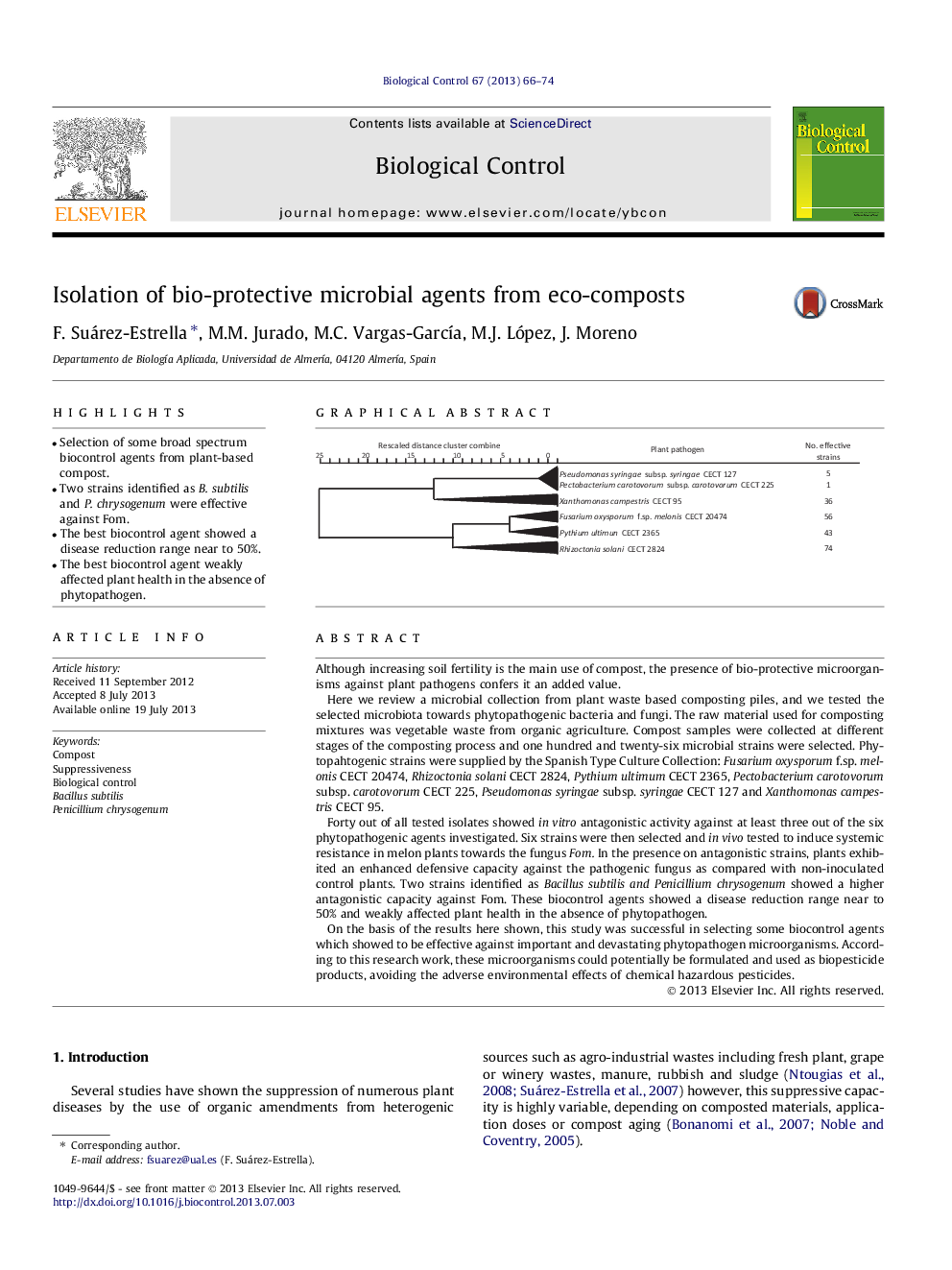| Article ID | Journal | Published Year | Pages | File Type |
|---|---|---|---|---|
| 4504000 | Biological Control | 2013 | 9 Pages |
•Selection of some broad spectrum biocontrol agents from plant-based compost.•Two strains identified as B. subtilis and P. chrysogenum were effective against Fom.•The best biocontrol agent showed a disease reduction range near to 50%.•The best biocontrol agent weakly affected plant health in the absence of phytopathogen.
Although increasing soil fertility is the main use of compost, the presence of bio-protective microorganisms against plant pathogens confers it an added value.Here we review a microbial collection from plant waste based composting piles, and we tested the selected microbiota towards phytopathogenic bacteria and fungi. The raw material used for composting mixtures was vegetable waste from organic agriculture. Compost samples were collected at different stages of the composting process and one hundred and twenty-six microbial strains were selected. Phytopahtogenic strains were supplied by the Spanish Type Culture Collection: Fusarium oxysporum f.sp. melonis CECT 20474, Rhizoctonia solani CECT 2824, Pythium ultimum CECT 2365, Pectobacterium carotovorum subsp. carotovorum CECT 225, Pseudomonas syringae subsp. syringae CECT 127 and Xanthomonas campestris CECT 95.Forty out of all tested isolates showed in vitro antagonistic activity against at least three out of the six phytopathogenic agents investigated. Six strains were then selected and in vivo tested to induce systemic resistance in melon plants towards the fungus Fom. In the presence on antagonistic strains, plants exhibited an enhanced defensive capacity against the pathogenic fungus as compared with non-inoculated control plants. Two strains identified as Bacillus subtilis and Penicillium chrysogenum showed a higher antagonistic capacity against Fom. These biocontrol agents showed a disease reduction range near to 50% and weakly affected plant health in the absence of phytopathogen.On the basis of the results here shown, this study was successful in selecting some biocontrol agents which showed to be effective against important and devastating phytopathogen microorganisms. According to this research work, these microorganisms could potentially be formulated and used as biopesticide products, avoiding the adverse environmental effects of chemical hazardous pesticides.
Graphical abstractFigure optionsDownload full-size imageDownload as PowerPoint slide
